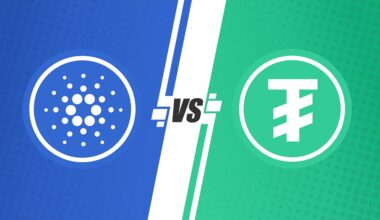How Health Savings Accounts Can Help You Save on Prescription Medications
When it comes to managing healthcare expenses, individuals often seek ways to save on prescription medications. One effective method is utilizing Health Savings Accounts (HSAs). HSAs allow individuals to save money tax-free specifically for medical expenses, including prescriptions. These accounts are designed for those enrolled in high-deductible health plans. Contributions made to an HSA are tax-deductible, and funds can grow tax-free, providing significant savings in the long term. This tax-advantaged approach makes HSAs a desirable option for individuals looking to minimize their healthcare costs. Moreover, the funds in an HSA can be used to pay for eligible medical expenses not only now but also in the future. This flexibility becomes particularly advantageous as prescription prices continue to rise. To maximize savings, it’s advisable to research which medications qualify for HSA reimbursement. By planning prescription purchases and utilizing HSA funds wisely, individuals can effectively decrease their out-of-pocket expenses while gaining control over their healthcare spending. Understanding the rules governing HSAs will empower users to make informed decisions regarding their healthcare financing and medication needs. Overall, HSAs represent a smart financial strategy for savvy consumers.
In addition to tax benefits, HSAs offer flexibility that enhances their appeal. Users can choose to invest the funds within their HSA account, which can potentially increase their savings over time. This investment option is particularly suitable for long-term saving strategies, allowing funds to grow and work for individuals rather than sitting idle. Health Savings Accounts have gained popularity as more people recognize the financial advantages they provide in managing medical costs effectively, especially with regard to prescription medications. Individuals can use their HSA funds directly at pharmacies, making the process convenient and straightforward. Additionally, HSAs are portable accounts, meaning that account holders retain their funds even if they change jobs or health insurance plans. This portability ensures that individuals can continue to benefit from their saved funds without the risk of losing their contributions. It offers peace of mind in an ever-changing job market. For those who frequently need prescriptions, using an HSA can lead to significant savings, especially when expenses accumulate over time. The proactive management of these accounts allows users to strategically plan for future healthcare expenditures and needs, leading to a healthier financial outlook.
However, it is crucial to understand the regulations surrounding Health Savings Accounts to maximize their benefits. There are contribution limits set by the IRS that individuals must adhere to when investing in these accounts each year. For 2023, individuals can contribute up to $3,850 to their HSAs, while families can contribute up to $7,750. Participants aged 55 and older can enjoy an additional catch-up contribution. This means that an individual could potentially contribute more than the established limit each year. Additionally, all contributions must be made during the tax year for which the deductions are claimed. It’s also worth noting that funds contributed to HSAs do not expire, allowing users to carry over balances from year to year. This characteristic of HSAs makes it an appealing savings vehicle for future healthcare expenses, including significant medical bills and prescription needs. Ultimately, understanding these limits and planning contributions accordingly ensures that individuals maximize their HSA while benefitting from tax advantages. This strategic approach enables consumers to confidently navigate the complexities of healthcare costs effectively.
Using HSAs for Prescription Medications
When it comes to utilizing Health Savings Accounts to pay for prescription medications, it’s essential to understand what expenses are eligible. Generally, most prescribed medications are qualified expenses, allowing account holders to use their HSA funds for immediate and ongoing health needs. Moreover, if required, individuals can also leverage their HSA to cover out-of-pocket costs associated with prescribed treatments. This helps ensure that patients adhere to prescribed regimens without facing financial strain. Moreover, over-the-counter medications may also qualify for HSA reimbursement if prescribed by a physician. This wide range of eligible expenses makes HSAs versatile tools for managing medical finances. When planning purchases, users are encouraged to keep receipts and documentation for all transactions involving HSA-funded expenses. This provides necessary proof in case of audits or inquiries from the IRS as to ensure compliance. Keeping organized records also simplifies the process of tracking health expenses and managing budgets effectively. Therefore, understanding the full range of what qualifies under an HSA can help individuals confidently navigate their medication purchases while benefiting from their tax-advantaged savings.
Furthermore, integrating HSAs into your financial strategies provides an avenue to budget for healthcare expenses, particularly prescriptions. Many financial experts recommend setting up automated contributions to HSAs, making it easier for individuals to fund their accounts regularly. Automating contributions helps build balances steadily, contributing to robust savings for future medical necessities. Healthcare costs can accumulate quickly, and the increasing prices of prescriptions often contribute to this reality. Regular contributions ensure that individuals are prepared for unexpected expenses while enhancing their enjoyment of the tax benefits associated with HSAs. With the right planning, consumers can use the funds accumulated in their HSA to readily address any medication-related expenses without straining their typical budget. This forward-thinking approach emphasizes the intersection of health and finances, encouraging proactive healthcare management for individuals and families alike. Collaborating with a financial advisor may provide additional insights into creating a comprehensive savings strategy that takes full advantage of HSAs while optimizing tax benefits. This allows individuals to forge a path toward not only saving money on medications but overall healthcare expenses.
As we continue to unravel the complexities surrounding healthcare, displaying awareness of all available options becomes pivotal. This includes maintaining an up-to-date understanding of prescription drug prices and the effectiveness of HSAs in decreasing such costs. Regularly checking for updates regarding which medications and services are eligible for HSA reimbursement ensures maximized financial savings. Education surrounding formulary changes and generic alternatives often leads to further savings when paired with HSAs. This awareness empowers individuals to engage in discussions with healthcare providers about what treatments are appropriate and covered under their HSAs, fostering transparency and patient advocacy. Ultimately, the more informed individuals are about their medication needs, the better they will manage their health expenses. Additionally, developing relationships with pharmacists can provide insights into lower-cost alternatives and available discount programs that may supplement HSA savings. By combining knowledge about HSAs with proactive management of prescriptions, individuals position themselves to make savvy decisions that support their overall health and wellness. The interconnected nature of healthcare and finance becomes apparent within this framework, highlighting the crucial role of HSAs in today’s medical landscape.
Conclusion
In conclusion, Health Savings Accounts serve as powerful tools for individuals aiming to reduce the financial strain of prescription medications. By leveraging the tax benefits associated with these accounts, individuals can not only save for present needs but also prepare for future healthcare expenses. Understanding eligibility requirements and contribution limits ensures that individuals make the most of their HSAs, ultimately enhancing their financial well-being while addressing healthcare needs. As prescription prices continue to rise, employing HSAs for medication expenses becomes increasingly important. Consumers who utilize these accounts wisely through effective planning can pave the way for healthier lifestyles without the burden of excessive out-of-pocket expenses. Furthermore, promoting awareness surrounding HSAs encourages individuals to take charge of their healthcare finances, leading to improved financial literacy and autonomy. Ultimately, it is about making informed choices that enhance the holistic experience of healthcare, which reminds individuals of the significant importance and potential impact of Health Savings Accounts. Taking steps today to understand HSAs can have lasting financial benefits, fostering a positive relationship between health management and responsible spending.


